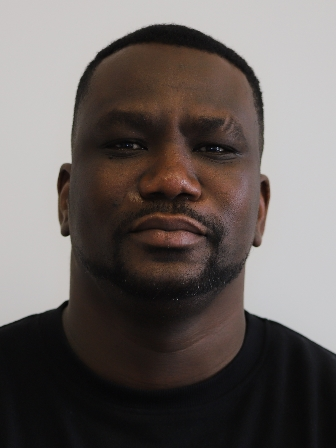Oladapo O. Ajayi, PhD

Oladapo O. Ajayi holds a doctorate in Literatures in African Languages from the Bayreuth International Graduate School of African Studies (BIGSAS) (2023), an M.A in intercultural Anglophone Studies, University of Bayreuth (2017), Germany and B.A French, Obafemi Awolowo University, Ile-Ife ( 2010). My research interest is in the embedded knowledge in underrepresented literatures. The Yoruba print culture project allows unique textual encounters of various genres and tropes.
My approach to literature as a way of decolonising methods, categories and frames allows me to complicate notions of what qualifies as literature while accommodating ephemeral texts. Within the framework of the Yoruba Prints, I am interested in how Yoruba print culture allows us to intrinsically query existing methods and highlight the unknown or underrepresented texts as a viable source of knowledge.
My recently published PhD thesis available via open accesss is titled “Fújì Music and Everyday Life in the Contemporary Urban Yorùbá Space”. I explored how fújì shapes the contemporary Yorùbá urban space in various ways and vice versa. Drawing insights from early scholarly works like Karin Barber, Musila, Newell and Okome, Balogun and Gabroyes, the thesis approaches fújì as a popular culture text and site to encounter people’s inventions. Fújì, in this case, provides access to counter-narratives of contemporary African stories in unpredictable and complex ways. The dialectic and reflexive dynamics existing between fújì music and the Yorùbá urban lifeworld is one of the recurrent themes in the thesis. The thesis queries how fújì constitutes the aesthetic of lived experience in the contemporary urban Yorùbá lifeworld.
As an interdisciplinary project, it takes fújì lyrics as the text for close reading in literary studies and uses ethnography-generated materials from interviews and participants’ observations. The arguments in this thesis are submerged under two broad strands; they are: “fújì: Reading Dynamism and Complexities of the Everyday” and “Aesthetic Experience and the Agency of Music (fújì) on the Performance of Social Persona”. The first strand argues broadly that fújì’s dynamism defiles existing notions of textual classifications and opens the debate and manifestations of plural epistemologies. The study of fújì enables an encounter with plural epistemology and peculiar historical trajectories and values Barber (2007:2). Fújì challenges working with the assumption that centres on written traditions as limiting and exclusionary. Yorùbá concepts of “ìgboro”, the street, comes alive as part of the main analytical concept in the thesis; it is derived from fújì text and its context of production. My use of ‘ìgboro’ in the thesis signals a broad range of experiences, synonymous categories, and concepts – referencing the discourse around the lower strata space of the contemporary urban Yorùbá space. Ìgboro discourse is embedded in the discourse of social mobility and stylised masculine performativity in the Yorùbá urban space. The second overarching theme in this thesis speaks to “Aesthetic Experience and the Agency of Music (fújì) on the Performance of Social Persona”, where fújì’s agency is emphasised as an experience of acting upon listeners. As part of strategies of allowing fújì to manifest as a generative text, the thesis draws from Yorùbá concepts relevant to engaging with fújì through the lens of aesthetic experience. Oríkì is considered a commodity of desire that fújì audience seek during their encounter with musicians. Oríkì provides a transcendental experience in which the musicians and their audience co-create within the larger framework of the Yorùbá notion of Ènìyàn, personhood. oríkì’s trope in fújì enables diverse possibilities of imagining, performing, and curating the Gbajúmọ̀ (Big man) into public discourse and collective memory of the Yorùbá society. The work is available on EPub Bayreuth: